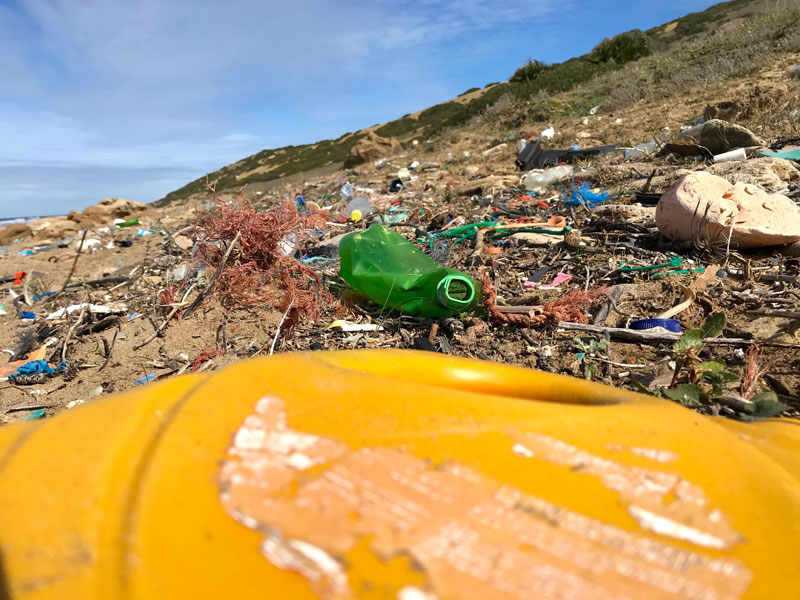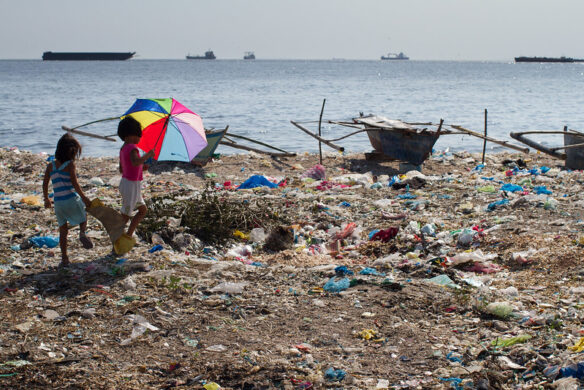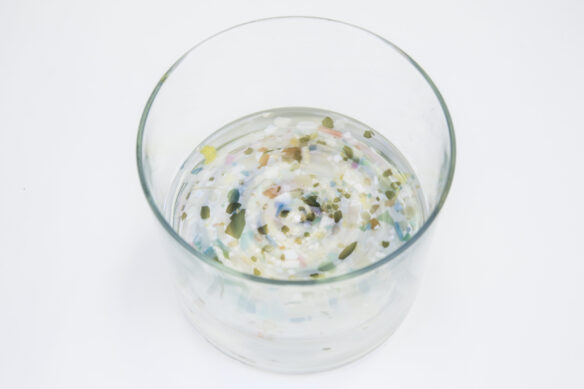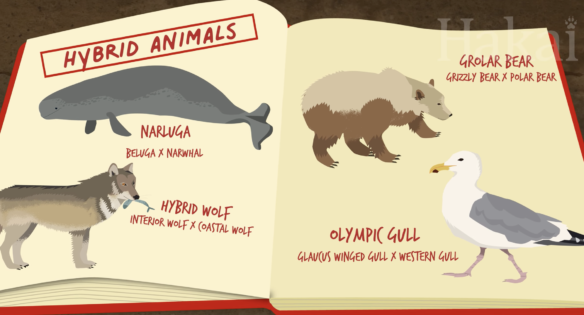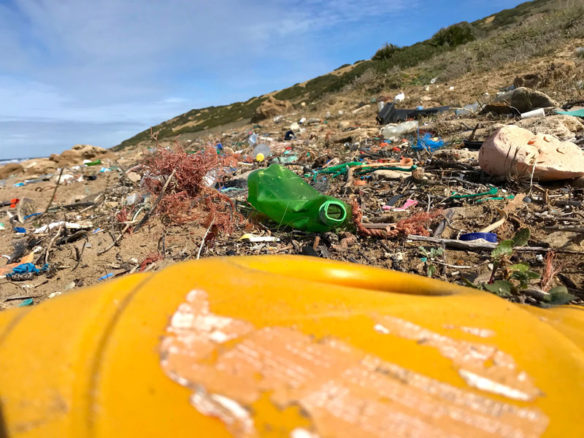
Plastic pollution. Photograph: © SAF — Coastal Care
Excerpts;
A small enzyme could be the solution to plastic pollution, one of the planet’s biggest environmental problems. Millions of metric tons of plastics wind up in the ocean each year.
Researchers at the University of Portsmouth in Great Britain may have come up with a solution. They figured out a way for a natural enzyme to digest strong plastic commonly used in bottles…
Read Full Article, CBS News (04-18-2018)
Microplastic pollution in oceans is far worse than feared, say scientists; Guardian UK (03-12-2018)
A study reveals highest microplastic pollution levels yet discovered anywhere in the world in a river in Manchester, UK and shows that billions of particles flooded into the sea from rivers in the area in just one year…
More plastic than fish in the sea by 2050, Guardian UK (01-19-2016)
One refuse truck’s-worth of plastic is dumped into the sea every minute, and the situation is getting worse, according to a new report launched at the World Economic Forum today. New plastics will consume 20% of all oil production within 35 years, up from an estimated 5% today…
Microplastics pollute most remote and uncharted areas of the ocean; Guardian UK (02-12-2018)
More than 8. 3 billion tons of plastics made: Most has now been discarded; Science Daily (07-19-2017)
Humans have created 8.3 billion metric tons of plastics since large-scale production of the synthetic materials began in the early 1950s, and most of it now resides in landfills or the natural environment, according to a study.
Plastic pollution: When The Mermaids Cry: The Great Plastic Tide, Coastal Care
Plastic is versatile, lightweight, flexible, moisture resistant, strong, and relatively inexpensive. Those are the attractive qualities that lead us, around the world, to such a voracious appetite and over-consumption of plastic goods. However, durable and very slow to degrade, plastic materials that are used in the production of so many products all, ultimately, become waste with staying power. Our tremendous attraction to plastic, coupled with an undeniable behavioral propensity of increasingly over-consuming, discarding, littering and thus polluting, has become a combination of lethal nature…
Biodegradable Plastics Are Not the Answer to Reducing Marine Litter, Says UN; UN News Center (11-23-2015)
Widespread adoption of products labelled ‘biodegradable’ will not significantly decrease the volume of plastic entering the ocean or the physical and chemical risks that plastics pose to marine environment, concluded a UN report…
Collecting plastic waste near coasts ‘is most effective clean-up method’, Guardian UK (01-19-2016)
Loving the Ocean Starts at Home, National Geographic (09-08-2016)

